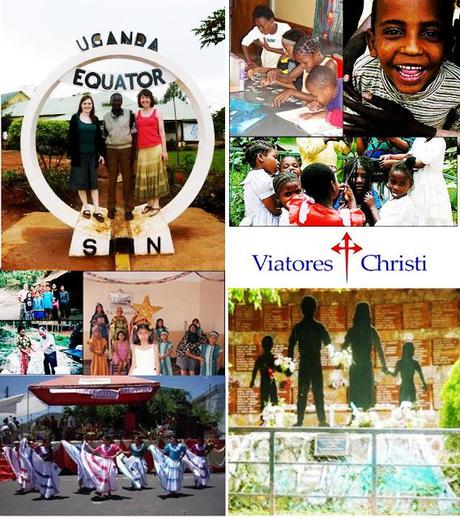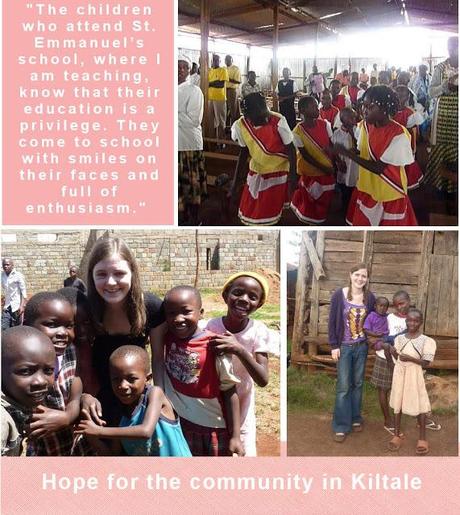 With all this talk of recession and the failing economy, it is easy to forget those of us who are far more worse off. With over a billion people living in desperate poverty and degradation the world can seem hopeless and grim. Yet even with the economic doom and gloom people are still sacrificing their safety and comfort to help others. Charities and volunteer societies still aim to help the poorest in the world and in this climate we need it more than ever. One of these volunteer societies is Viatores Christi; Viatores Christi is a Catholic lay missionary association which
recruits, trains and sends volunteers to work in areas of need overseas. The areas in which they work at include basic education, health care, human rights and community development. Members are currently volunteering in Haiti, Brazil, Peru, El Salvador, Guatemala, Zambia, Uganda, Cambodia, Philippines, Ghana and South Africa.
With all this talk of recession and the failing economy, it is easy to forget those of us who are far more worse off. With over a billion people living in desperate poverty and degradation the world can seem hopeless and grim. Yet even with the economic doom and gloom people are still sacrificing their safety and comfort to help others. Charities and volunteer societies still aim to help the poorest in the world and in this climate we need it more than ever. One of these volunteer societies is Viatores Christi; Viatores Christi is a Catholic lay missionary association which
recruits, trains and sends volunteers to work in areas of need overseas. The areas in which they work at include basic education, health care, human rights and community development. Members are currently volunteering in Haiti, Brazil, Peru, El Salvador, Guatemala, Zambia, Uganda, Cambodia, Philippines, Ghana and South Africa.Viatores Christi aims to respond to needs overseas by giving people an opportunity to share their lives (skills, profession / trade) and witness to their faith in another culture. It was formed in 1960 by a group of University students who had participated in holiday volunteer work. Marian Farrell, a primary school teacher from Co. Wicklow Ireland took up a teaching assignment with the Daughters of Charity Services in Matisi, Kiltale, Kenya in November 2009.
“The Daughters of Charity Sisters have a new project here in Matisi, on the outskirts of Kitale town. The Sisters are working closely with the community on social, economic and educational projects that are aimed at helping members of the community to break a cycle of poverty and social deprivation. A common way of making a livelihood here is brewing illegal beer. Babies born to very young mothers are often left in the care of grandparents who are unable to look after them. HIV / AIDs has also left children orphaned. It is very difficult to change old ways and to take steps to change lifestyles that are so familiar but there are people here doing just that. Many of those people are the children of Matisi. They are providing hope for the community by availing of educational opportunities that their parents didn’t have."

Here’s how I fit into life here on a daily basis:
- 7:00am: Arise and shine (I’ve opted out of 6:30am morning prayer)!
- 8:00: I squelch through the mud path that leads to school. I am greeted at every turn with, “How are you mzungu (white person)?” shouted in unison by several smiling toddlers. I hear little footsteps running to greet me. Hands extend for a shake. I usually respond with a hand tap as once a toddler gets hold of my hand s/he is usually not very willing to give it back!
- 8:20: Lessons begin. Rooms fill up beyond capacity with children’s toes up to the blackboard and limbs out the doors / holes in the wall. At first when I began teaching I wondered if the children understood me at all. I was getting very little in the way of response but they quickly got used to my funny accent and now I get plenty of answers or at least giggles.
- 9:00: Latecomers continue to arrive. We Irish aren’t the best timekeepers but time really seems to mean very little here.
- 11:00: Break time: Like schools all over the world, children play and teachers retire to the staffroom as noise levels rise. On occasion we have to banish snakes or other uninvited wildlife before entering.
- 12:40: The sun will hopefully have dried up the mud path making for an easier walk home for lunch. I meet the pupils who are attending lessons on the Sisters’ compound. There are children living in Matisi who have never been to school or who have dropped out, usually to work at home or on farms. A Kenyan Daughters of Charity aspirant has started to teach some of these children. When they have caught up sufficiently the pupils can then enrol in primary schools.
- 2:00: My favorite lesson of the day begins. In St. Emmanuel’s there are children who have started school late and so are older than others in their class. Myself and a Kenyan teacher hold an extra class for these children. We provide support for them, helping them to build confidence and to keep up in class (in a class of about 100 pupils). It is a way of encouraging children to stay at school despite the challenges they face. The enthusiasm for this class is so high that we usually need to have a bouncer at the door to keep those not on the roll from entering!
- 3:10: Time to help children with homework or keep them in detention for not doing yesterday’s homework!
- 4:10: When the school bell rings, English lessons end and Kiswahili lessons begin. As I walk home I am accompanied by my English pupils / Kiswahili teachers who are determined to get my pronunciation in order.
- 5:00: Sometimes I visit homes with a Sister. Having come from the anonymity of a large Irish town, the open door policy that operates here is quite a nice change. Just arrive at a door calling “hodi” and you are welcomed in. The pace of life is not so hectic and people always have time for a chat. On Wednesdays an Irish priest visits us to say Mass and have dinner.
- 7:00: After a brief dusk, darkness falls quickly and the wisest option is to stay in the compound. Evenings are usually pretty relaxed (except for the huge bundles of copies to be corrected)! I chat and watch television with my two housemates, Tanzanian and Kenyan aspirants. Doing hair is also a big part of some evenings. The most appreciated item I brought with me was my hair straightener!”
Fergal Mawe from Co. Kerry went on assignment with Fr. Shay Cullen’s PREDA (People’s Recovery Empowerment and Development Assistance) project in the Philippines in August 2010 having completed the VC training programme in February 2010.
"'Having finished my apprenticeship last year with McCarthy, Looby & Co (Cahir, Co Tipperary), I was left with the same problem as any newly qualified solicitor – find a low-paid job that you’re over-qualified for (if you’re lucky) or find the nearest dole queue. Neither looking very attractive, I turned my attention to the human rights sector and, in particular, a sector that I feel passionate about – child protection."
PREDA provides a refuge home for abused and/or sex trafficked girls, It also provides counselling, education and free legal aid."Sold by their parents, trafficked under the cover of night to a sex bar, and made entertain Western paedophiles by a pimp. This was the life of some 20 girls who were rescued from this awful situation and who are now currently residing at the People’s Recovery Empowerment and Development Assistance (PREDA) in Olongapo, the Philippines and it is where I volunteer."
"What attracted me and most people to PREDA is that the organisation not only provides legal services but also therapy, counselling, micro- financing for families, human rights training for the police, schools and Local Councils as well as preventive education. PREDA also provides real protection and delivers this with common sense and mutual trust."
"There is nothing more rewarding in life than to wake up everyday knowing that the next nine hours will be spent working towards the rights of the child and the human rights of the poor. This particular type of work, and what I have seen of the work of Columbans throughout the Philippines, is a testament to their bravery, their faith and their commitment. I consider it a privilege to be part of this work. If you have skills to offer, maybe you too could consider making your contribution."
Viatores Christi is always looking for volunteers and help. To donate please visit this link -Donations and support local fundraising.
- Read the blog of a current Viatores Christi volunteer who is working with the Tanzanian Women Lawyers Association : Eithne's Journey
- Profiles of current and past volunteers

